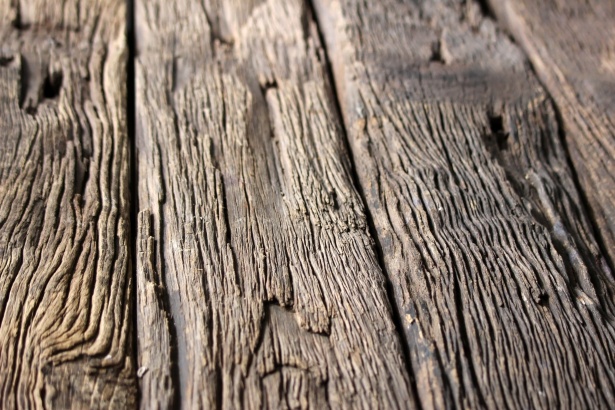How to Export Rough Wood from Nigeria with Customs Clearance
How to Export Rough Wood from Nigeria with Customs Clearance
Nigeria is a major producer of timber and has a thriving wood export industry. It is one of the largest exporters of timber in the world. Yet, exporting rough wood from Nigeria can be challenging. In this article, we explore how to export rough wood from Nigeria with customs clearance.
There are two ways you can export rough wood from Nigeria. The first, and most common way, is to use an agent or broker who has been given the rights by the Nigerian government to handle exports under their umbrella. The second way is to do it yourself, which may require a little more knowledge about Nigerian law but can save money in fees charged by agents and brokers. Here’s how both methods work:
The two ways to export rough wood from Nigeria
Method 1: Using an agent or broker
This method is the more common option. You will be working with a company already doing business in Nigeria and getting their permission to import your goods. The company will handle all the Nigerian customs clearance and pay any applicable duties and taxes so your goods can pass through Nigerian customs.
Method 2: Doing it yourself
This method requires a little more knowledge about Nigerian customs and regulations, but it can save you in fees and time. You will need to file the appropriate paperwork and pay the applicable duties and taxes to transport your goods across Nigerian borders. There are a few steps you will need to take:
What are the requirements for exporting rough wood from Nigeria?
To export rough wood from Nigeria, you will first need a license. This license can be obtained from the Nigerian Forestry Commission. You will also need a permit from the Nigerian Customs Service. To export rough wood from Nigeria without a specific license, you will need to own a legitimate timber trading company in Nigeria. In this case, you will need a license from the Nigerian Customs Service as well as a permit from the Nigerian Forestry Commission.
In order to export rough wood from Nigeria, you will need documentation proving you have owned the timber for at least one year, a letter of permission from the Nigerian Forestry Commission, and a certificate of origin from a reputable company.
Importing rough wood into Nigeria is a fairly simple process, but exporting it can be a little more complex. It’s important to do your research before exporting timber from Nigeria. The government has outlined specific requirements for exporting rough wood from Nigeria.
How do I export rough wood from Nigeria using an agent or broker?
The first, and most common way, is to use an agent or broker who has been given the rights by the Nigerian government to handle exports under their umbrella.
An agent or broker will take care of everything for you, including completing all the necessary export requirements, processing the shipment at the Nigerian ports, and delivering it to the destination of your choice. The drawback is that they will charge you for this service.
Many agents are available to work with you on exporting wood from Nigeria. You can start your search by contacting your local Nigerian embassy or consulate. If you are unable to find a contact in your area, there are plenty of international agents out there who specialize in exporting wood from Nigeria. To find one, simply do an online search for “wood export Nigeria” and you will find many companies available to help.
Find an agent or broker
Finding an agent or broker is the first step in exporting rough wood from Nigeria. Your agent will liaise with the Nigerian government on your behalf when it comes to customs clearance and any export taxes.
Many of the agents in Nigeria are located in Lagos, but you can find agents all over the country. Your agent will expect a commission on the total sale price of your timber. Commissions can range anywhere from 5-30% depending on the type of agent.
Some agents will also request an up-front payment for any taxes or fees they will incur during the export process. This type of payment is called an advance commission. However, advances are often negotiable with your agent.
If you choose to go it alone, you may need to know how to navigate Nigerian law yourself. You’ll need to research Nigerian customs law and apply for your own Nigerian Export Certificate (NEEC). You’ll also have to pay export taxes and duties on your own.
However, going it alone can save you some money in commission fees so you can focus your attention on other aspects of your business.
Get approval
The first and most time-consuming step of exporting rough wood from Nigeria is getting approval. The Nigerian government requires those shipping goods to obtain an export license, which can take up to three months to be approved.
Know your regulations
Another challenge is knowing the regulations for exports. As regulations change fairly often, it’s important to stay up-to-date on regulations for your industry.
The Nigerian government also requires all goods be transported by a licensed carrier, which can incur additional costs.
Shipping rough wood from Nigeria can be challenging. But with the right knowledge and connections, it’s possible.
Prepare your shipment
Packing your shipment can be a challenge, especially when it comes to customs clearance. In order to export rough wood from Nigeria, you’ll need to be aware of the regulations and alternate packing methods.
Nigeria uses the International Convention for the Control and Management of Ships’ Ballast Water and Sediments, also called the Ballast Water Management Convention. This Convention requires the use of a ballast water management system (BMS) in order to be in compliance with Nigerian regulations.
Exporting rough wood from Nigeria is only allowed with the following requirements:
-The shipment must be shipped by vessel.
-The shipment must be packed in containers approved by Nigeria Customs Service.
-The shipment must be declared at the time of departure to Nigeria Customs Service.
-The shipment must not exceed 150 metric tons.
-The shipment must be accompanied by the original Nigerian export permit.
The alternative to these requirements is to use “dry packing” for delivery of shipments that are less than 150 metric tons.
How do I export rough wood from Nigeria on my own?
If you want to export rough wood on your own, you will need to obtain a trade license from the Nigerian Customs Service. Once you have this, you are free to export. This process is different for different people, but generally it is as simple as contacting the Customs Service and providing your personal information.
You will then be sent a Customs Notification to pick up at the customs office and then you can bring that notification with you to the Nigerian ports and export your rough wood.
This process may sound simple, but it does come with some risks. There is a chance that your wood will be seized by authorities and you may have to pay a fine. And, if your wood is seized, there will also be a risk of paying a large fine.
If you still want to go this route, there are some things to consider:
-Do not import any items that are prohibited by Nigerian law
-Do not import any items without obtaining the necessary license
-Do not import any items that would be considered ‘indiscriminate dumping’ (this includes second hand clothing and used tires)
-Do not import any hazardous or dangerous materials
-Do not import any items that could be considered hazardous waste
-Do not import
Conclusion
One of the most important aspects of exporting rough wood from Nigeria is ensuring that your product meets all Nigerian and international safety and quality standards. If you want to export rough wood from Nigeria without an agent or broker, you will need to know the product safety and quality standards and meet those.
It is also important to be aware of the costs of exporting rough wood from Nigeria. Your export will be subject to import duties as well as fees for an agent or broker, as well as costs for preparation and packing. It is also important to know the requirements for customs clearance. You will need to present certificates of origin and possibly other documents proving that your company is a certified company authorized to export rough wood from Nigeria.
The requirements for customs clearance are a little different for each country you export to. You will have to be aware of those requirements and have them ready before shipping your product.
Although it may seem a little more complicated, exporting rough wood from Nigeria can be done. With some knowledge and attention to detail, you will be able to export rough wood from Nigeria with customs clearance.








LEAVE A COMMENT
You must be logged in to post a comment.